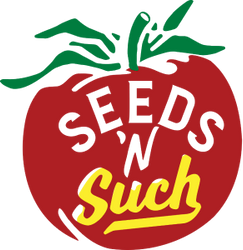
Incompatible Plants (6 Vegetables That Just Don’t Go Together)
While most plants in the garden get along just fine with one another, there are a few that don’t.
It makes sense to put plants together that have similar care needs. Place vegetables together that have similar watering needs and fertilizing needs. Plant your cool-season plants together and your warm-season vegetables in a different block. When possible, rotate crops from season to season so that no one crop is in the same place repeatedly.
Try to keep plants together that reach the same mature height. You don’t want a tall vegetable, like okra, blocking a smaller sun-loving bush, like peppers. The exception to this rule are plants that don’t mind some shade or cool-weather plants that need some protection from the summer sun.
But just like there are some guidelines around grouping plants together, there are also a few general scenarios that you want to avoid. Read on for a few specific examples of common garden vegetables that do not grow well together.
-
Tomatoes and potatoes
It’s common knowledge that tomatoes and potatoes shouldn’t be grown together, since both vegetables are at risk for blight, a fungal disease that will quickly rip through the tomato and potato patch in wet weather, discoloring foliage and causing the plants to rot and eventually die.
This is the first rule of companion planting–put some distance between plants that succumb to the same pests and diseases, to reduce the risk of one bad infestation taking out multiple crops.
Fortunately, there are several tomato and potato cultivars that have been bred to have some resistance to blight, but the disease is usually inevitable by the end of the season. But the pest cure is an ounce of prevention, so be sure to separate tomatoes and potato rows by at least 10 feet, and more if possible.
-
Onions and peas
While peas are friends to many a garden vegetable, as they’re a legume that fixes nitrogen in the soil that other plants can use, onions aren't kind to peas. Onions are actually considered allelopathic–a term used to describe plants that leech chemicals into the soil around their roots, which can stunt the growth of another nearby plant.
Similarly, keep your other alliums (like garlic and chives) away from beans as well, since beans will also perform poorly in the presence of allelopathic plants. Keep alliums far from your legumes, and when you’re planning next years’ crop rotation, plant something other than beans and peas after onions and garlic.
-
Cabbage and strawberries
Why can’t strawberries and cabbage get along in the garden? Strawberries and most Brassicas are actually pretty aggressive plants. Strawberries are vigorous growers that sprawl to fill a space, while cabbage and other cruciferous veggies have a nasty tendency to leech chemicals in the ground to inhibit the growth of other plants.
This is no reason not to grow cabbage and strawberries–just plant the fighters in their own bed or companion plant them with a more easygoing vegetable. For more information on perfect companion plants, read this article.
-
Carrots and dill
There’s another reason that you might want to separate some vegetables from one another, and a prime example of this is dill and carrots. Carrots and dill are members of the same plant family, the Umbellifers–aptly named for their dainty, dumbbell-shaped flowers.
The danger with planting dill and carrots too close together is that they might actually cross-pollinate, resulting in a weird-tasting dill. Dill also draws carrot fly, a pest whose larvae can quickly destroy a crop of carrots. Better to play it safe and plant carrots and dill on opposite ends of the garden.
-
Cucumbers and basil
Did you know that cucumbers take on the flavor of their environment? Cucumbers are mostly water, after all. Plant aromatic herbs like basil too close to your cucumber plants and your cucumbers might actually taste a little spicy. This may sound like a good idea in theory, but aromatic herbs actually reduce cucumber yields. Keep the basil in the herb patch for best results.
-
Fennel and lettuce
Fennel is a fun vegetable to grow, but it doesn’t exactly get along with other plants. A vegetable in the previously mentioned Umbellifers plant family, fennel certainly has value in the garden–its flowers attract beneficial insects, and grilled fennel bulb is wonderfully delicious. Just be sure to give fennel its own bed or your other vegetables, especially lettuce, will suffer for it.
In summary
The beautiful thing about gardening is that you can grow whatever you want. Your garden is yours, and you can choose to grow only what you (and your household) will actually eat and enjoy. You can grow absolutely anything you want, but the truth is that while many plants do well together, there are others that just don’t agree.
Use this list to help you coordinate amicable seating arrangements in your garden, and you’ll have your most productive season yet!
